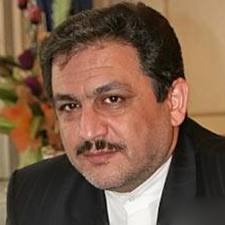Azerbaijan and Islamism: A promising prospect?

IRD: Why are some members of the Islamic Republic of Azerbaijan on trial?
AS: The story goes back to about 8 months ago, when following an official ban on hejab in schools –which sparked protests from the religious strand of Azerbaijan's society-- Mohsun Samadov, leader of the Islamic Party, called the nation to put an end to the rule of the secular regime. Samadov and some members of his party have been charged with harming national security, attempting to seize power, and illegal possession of arms-- charges that they have of course refuted.
IRD: What is the general standing of Islamist parties in the Republic of Azerbaijan?
AS: I think more than being parties, they are scattered groups. Although Shi’a Muslims form 70% of Azerbaijan's population, they are less organized compared with the Sunni minority. Wahhabis-- supported by Saudi Arabia-- are particularly following an unabated religious campaign in Azerbaijan, which has gradually prompted worries among the Azerbaijani officials. All in all, religious activities are relatively free, as long as they are devoid of a political agenda.
The Islamic Party of Azerbaijan does not have a significant popular base in Azerbaijan, as hejab is also still not the preferred garment for Azerbaijani women. Opposition parties’ leaders, such as Isa Gambar and Ali Karimli, have criticized the trial of Mohsun Samadov, but in defense of freedom of speech, not Islamism. Like the government, most of the opposition parties in Baku are secular; they support the separation of religion and politics and lean towards the West or Turkey. They may not endorse a ban on hejab, but also they don’t like to see its promotion.
IRD: Why aren’t the Islamist groups popular?
AS: You know that in terms of the percent of Shi’a population, Azerbaijan stands third after Iran and Iraq. But Azerbaijanis have been under the rule of Tsars, and later the Communists, for two centuries. So they have undergone a substantial cultural and religious transformation. Even after the Soviet Union’s collapse, Azerbaijan has been mostly influenced by Western culture. All the different interpretations of Islam –belong either to Sunni or Shi’a denominations- have created quite some confusion in this country. People are not still very familiar with Islamic teachings, due to living under Communist rule for seventy years. It is pretty natural that they don’t calibrate every aspect of their life with Islam. What they are following at the moment is a traditional form of Islam, mostly limited to traditions and rituals.
IRD: Can the Arab uprising inspire Islamist groups in Azerbaijan?
AS: The popular demonstrations in Arab countries will inevitably exert their psychological impact in other Muslim countries, especially countries like the Republic of Azerbaijan where there is limited freedom of speech. I think the influence is not exclusive to the Islamic groups, but also the pro-West opposition groups.

